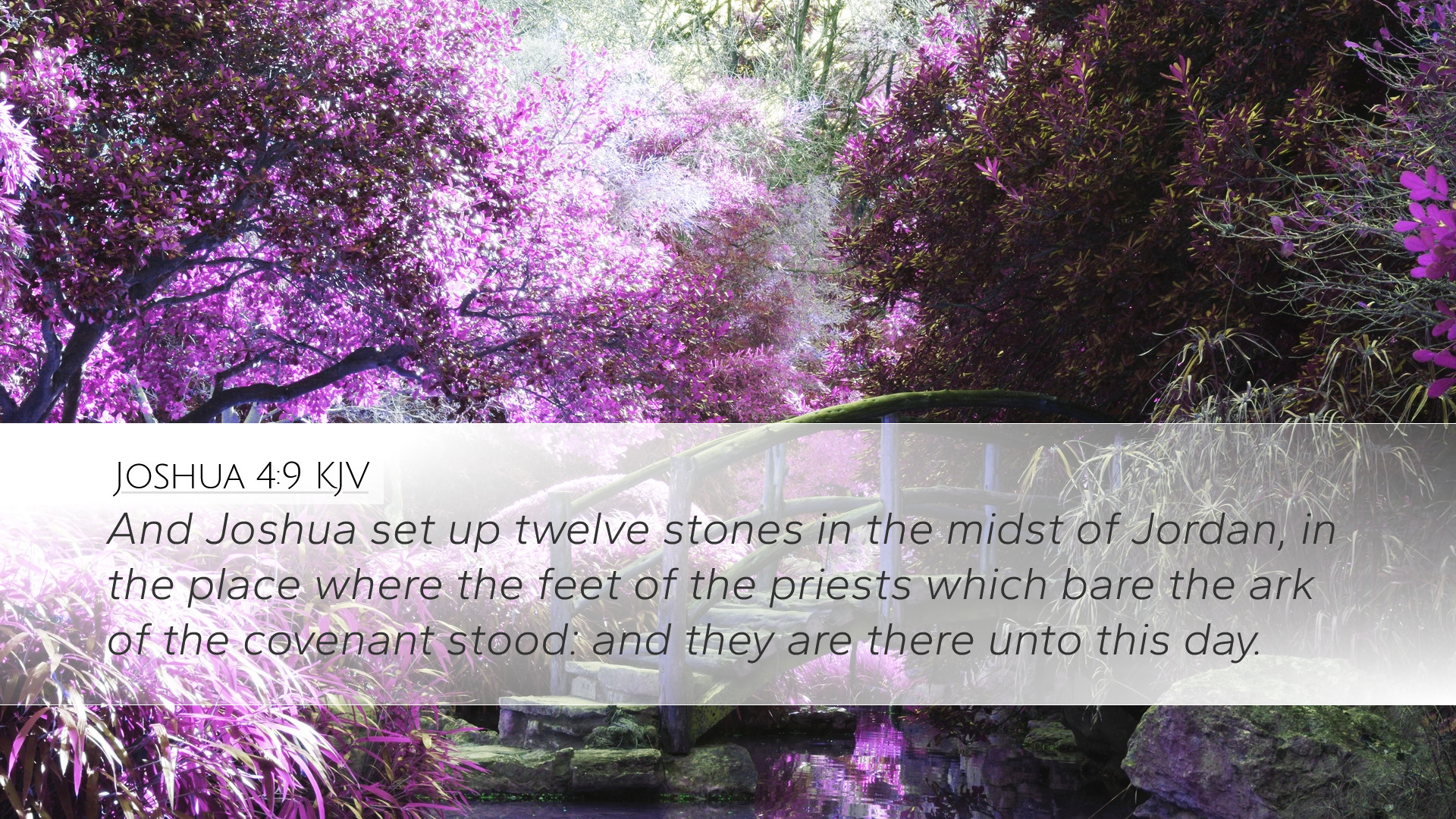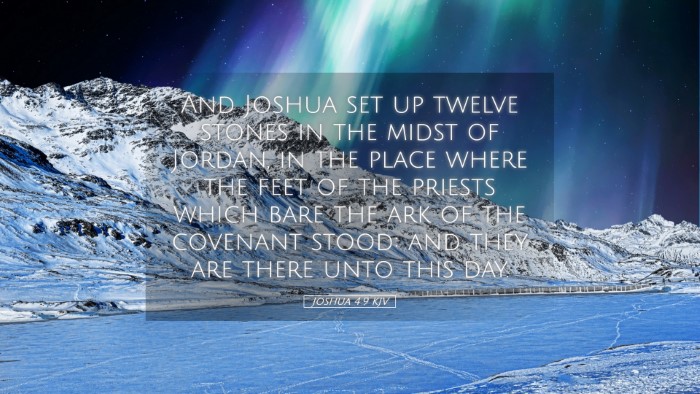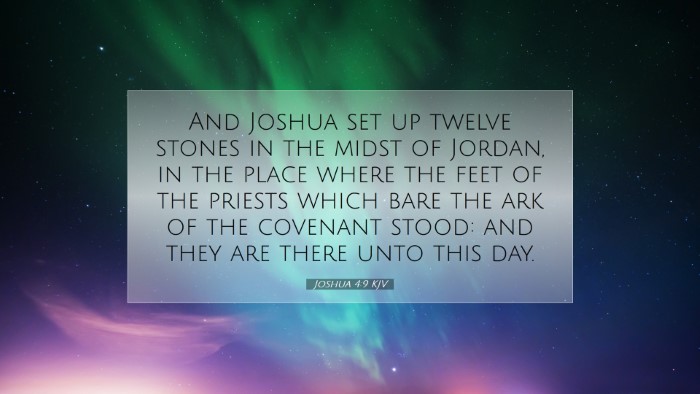Old Testament
Genesis Exodus Leviticus Numbers Deuteronomy Joshua Judges Ruth 1 Samuel 2 Samuel 1 Kings 2 Kings 1 Chronicles 2 Chronicles Ezra Nehemiah Esther Job Psalms Proverbs Ecclesiastes Song of Solomon Isaiah Jeremiah Lamentations Ezekiel Daniel Hosea Joel Amos Obadiah Jonah Micah Nahum Habakkuk Zephaniah Haggai Zechariah MalachiJoshua 4:9
Joshua 4:9 KJV
And Joshua set up twelve stones in the midst of Jordan, in the place where the feet of the priests which bare the ark of the covenant stood: and they are there unto this day.
Joshua 4:9 Bible Commentary
Bible Commentary on Joshua 4:9
In Joshua 4:9, we encounter a significant moment in the history of Israel—the crossing of the Jordan River and the establishment of a memorial. This event, pivotal in the conquest of Canaan, is enriched by insights from multiple public domain commentaries.
Contextual Background
Joshua 4:9 states, "And Joshua set up twelve stones in the midst of Jordan, in the place where the feet of the priests which bare the ark of the covenant stood: and they are there unto this day." This verse serves as a crucial link in the narrative of Israel's journey from Egypt to the Promised Land. Here, God commands Joshua to set up stones, a biblical symbol signifying remembrance and teaching.
Analysis of Joshua 4:9
1. Symbolism of the Stones
According to Matthew Henry, the twelve stones represent the twelve tribes of Israel, emphasizing unity among them. The stones were intended to be a lasting testimony of God's miraculous intervention, serving as a reminder not just of the momentous crossing but also of the faithfulness of God throughout their journey.
2. The Act of Memorialization
Albert Barnes notes that the act of placing stones in the Jordan establishes a tactile reminder of God's presence. These stones would provoke questions from future generations, providing opportunities for the elders to teach about God’s deliverance.
- The permanence of the stones signifies God’s everlasting covenant.
- It illustrates how monuments can serve to reinforce faith.
- This practice can encourage communities to remember and celebrate their spiritual heritage.
3. Divine Command and Obedience
Adam Clarke emphasizes the importance of obedience to God’s directives. There is no casual establishment of the stones; rather, it is a divine command followed through by Joshua. Clarke elaborates that the act of setting up stones was laden with theological significance, symbolizing obedience, honor, and the acknowledgment of God's might.
Theological Implications
In analyzing Joshua 4:9, we see that the stones symbolize more than just a historical record; they encapsulate the theological principles that govern Israel's identity.
- Remembrance: It compels the community to remember the past acts of God.
- Teaching: The stones serve an instructional purpose for both children and adults.
- Identity: The twelve stones reinforce the identity of Israel as God's chosen people.
Lessons for Today
From Joshua 4:9, present-day believers can derive several key lessons:
- The Importance of Remembrance: Regularly recalling God's faithfulness can inspire hope in contemporary trials.
- The Role of Community: Just as the stones represent the tribes, today’s church should emphasize unity in the faith community.
- Faithful Obedience: The act of setting up stones reflects our call to obedience in fulfilling God’s commands.
Conclusion
Joshua 4:9 encapsulates the essence of remembrance, unity, and obedience in the life of Israel, anchoring their identity in God’s faithfulness. Through the insights provided by commentaries from Henry, Barnes, and Clarke, we gain a deeper understanding of the significance of this passage. It encourages believers today to establish their own 'memorials'—practices, traditions, and reminders of God's promises and interventions in their lives.


